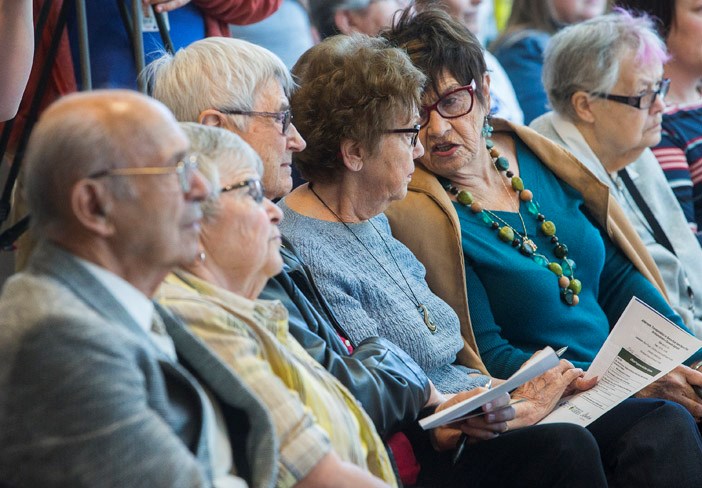When Arlie Blakely learned she had cancer in 2017, her doctor told her to go to Devon for an appointment.
The problem? She lives in Edson, which is more than 200 km away, and she doesn’t drive. She didn’t know anyone who could give her a ride at the time, and she couldn’t afford a cab.
“I didn’t even know where Devon was,” recalled the 80-some year-old.
Blakely is one of the many seniors in rural Alberta that face transportation challenges because they do not or cannot drive. She said it’s been a constant struggle in the months since her diagnosis to arrange rides into Edmonton for medical appointments, often involving overnight stays and rip-off cab drivers. Social visits have proved impossible, and she’s had to give up bingo.
“Mentally, it was really tough. It’s been a tough year.”
Sturgeon County is now part of a new pilot project meant to help seniors such as Blakely get where they need to go.
Alberta Seniors and Housing Minister Lori Sigurdson announced last April 25 that the province would run pilot projects for seniors' transit this year in Sturgeon County and the West Yellowhead Region, the latter of which includes Edson. The projects, run through the University of Alberta’s Medically At-Risk Driver (MARD) Centre, would test ways to provide seniors who cannot or choose not to drive, with transportation.
“Transportation is key for seniors to stay healthy, active, and connected in their communities,” Sigurdson said, speaking at the University of Alberta’s Li Ka Shing Centre.
But seniors in rural areas face real challenges if they don’t drive when it comes to grocery shopping, social visits, or medical appointments, she continued. Those challenges can leave them with no choice but to move.
Seniors make up about a quarter of Sturgeon County’s population, but there’s no seniors' transit network in the region, said county Mayor Alanna Hnatiw.
“It’s the single largest gap in senior services in our region.”
Family and community support service officers in Sturgeon, Bon Accord, Gibbons, Legal, Morinville, and Redwater heard that the province was running pilots on seniors transit and sent in a joint application, Hnatiw explained.
Each pilot includes $10,000 and about $25,000 in in-kind support from the U of A’s MARD Centre, said Bonnie Dobbs, the centre’s director. Her team has done similar pilots with Wainwright and Pincher Creek.
Transport challenge
Dobbs said a survey of about 1,400 Alberta seniors done last year by the MARD Centre found that about 20 per cent of non-drivers missed at least one medical appointment in the last six months due to lack of transportation. About a third said a lack of transport kept them from accessing essential services such as grocery stores at least once in that timeframe. About half of non-drivers said they lacked companionship as a result, with a third saying they felt socially isolated.Dobbs said her team would work with Sturgeon-area officials to create a seniors transit strategy and have it ready to roll out next year.
What the strategy will involve is up to the county, she continued. Wainwright beefed up its handi-bus service, for example, while Pincher Creek created a seniors’ bus service complete with shelters and fixed routes. Many communities start with handi-buses and build from there.
Sturgeon-area officials would hold a broad public consultation on seniors transportation once they’ve worked out a basic plan with Dobbs’s team, said Shelly Chubb of the county’s FCSS department.
“It’s not going to be an easy answer. Our region is quite large.”
Blakely said having a seniors transit system would cost money, but would also give her a lot of peace of mind. She suggested a handi-bus service as one option.
Alberta’s health care system has been great when it comes to treating her cancer, she emphasized.
“It’s the transportation that’s really, really bad.”
Questions on the pilot should go to Sturgeon County’s FCSS office at 780-939-8336.




